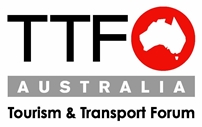
Aviation Innovation, Call For Visitor Opal & WTTC Chief Down Under
It’s great to be back in Brisbane today to be part of a panel discussion at the CAPA Airport Innovation Summit. It’s a great opportunity to talk about the transformations that we are seeing in our international gateways, the embrace of new technologies that are improving the visitor experience, the need to better link our airports with public transport, and some of the challenges we face with balancing the need for security and good old-fashioned customer service.
This week has heralded the end of paper tickets on Sydney’s transport network. More than 16 years after promises of an electronic ticketing system being in place in time for the Sydney Olympics in 2000, more than 8 million Opal cards are now in circulation – nearly twice the population of Sydney. Bravo to TTF member Cubic and successive Transport Ministers Gladys Berejiklian and Andrew Constance on what has been a very successful transition.
Now, that we’ve got our commuters taken care of, TTF has renewed its calls for the NSW Government to develop a dedicated Visitor Opal card to make it easier for the millions of travellers coming to Sydney each year, to access the public transport network to travel to key tourism attractions and precincts.
Visitors, holidaymakers and business delegates are not your average city commuter. They are here for a limited period and are looking for a transport solution that is easy to understand and takes the confusion out of loading travel cards with money.
In Denmark, a visitor can purchase a Copenhagen Card that covers all modes of transport, including trips to and from the airport, in addition to regional rail. It offers unlimited travel for one, two, three or five days and includes free admission to 72 museums and attractions, along with a range of other discounts for car hire, tours, shops and restaurants.
Now with the end of paper tickets, it’s time to look at how we can build on the Opal card to make it a positive and easy experience for anyone – commuter and visitor alike – travelling on the city’s trains, buses, trams and ferries.
The Chief Executive Officer of the World Travel & Tourism Council (WTTC) is in Australia this week and TTF had the great honour of hosting David Scowsill as part of his visit to our magnificent island continent. TTF has been an enthusiastic advocate of strengthening our industry links not just across Australia but with our sister visitor economy organisations across the world and the WTTC is leading the charge as the global voice of the industry.
The WTTC maintains a positive outlook for the industry even as we meet the challenges of the modern world including terrorism targeted specifically at visitor infrastructure and the economic impact of Brexit. Global travel and tourism grew 3.1 per cent in 2015, the sixth consecutive year of positive growth, it contributed $7.2 trillion to the global economy and supported 284 million jobs worldwide.
There have only been four occasions in the past 25 years where the industry has been badly impacted by crisis events – the 1991 Gulf War, September 11 terrorist attacks, 2005 SARS outbreak and, of course, the Global Financial Crisis in 2008. These global challenges resulted in a temporary reduction in the number of travellers but the industry has always bounced back.
WTTC has analysed four categories of crisis: disease, environmental disaster, political turmoil and terrorism, in terms of the impact on lost arrivals and recovery time. According to the analysis terrorism incidents have the shortest recovery times with an average of 13 months. Disease (21.3 months), environmental disaster (23.8 months) and political turmoil (26.7 months) take significantly longer from which to recover.
Whatever the challenge that the industry will inevitably face, it will always be overcome and the industry will only grow stronger over the longer term. The insatiable desire for human beings to travel and explore their world might be temporarily hampered or deterred by acts of violence, outbreaks of disease or an environmental catastrophe but it will always triumph in the end.
